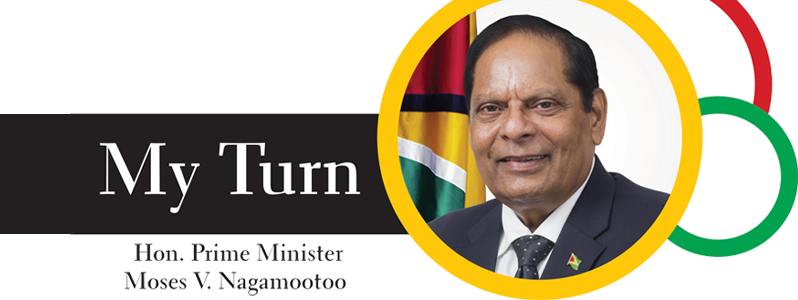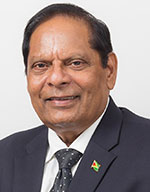YESTERDAY, October 6, marked the 42nd anniversary of the Cubana Air disaster. Many would not remember that mid-air mass murder, and the revulsion then against the perpetrators, who were identified as “anti-Castro Cuban exiles”.
Though it was widely believed at the time that the Central Intelligence Agency (CIA) was involved, there was no direct evidence of any links. However, documents released in 2005, and available on the Internet, stated that the CIA had advance information on a terrorist plan to bomb a Cubana airliner.
Four men were arrested for the bombing. After a trial in Venezuela, two were sentenced to 20 years in prison. The alleged mastermind, Orlando Bosch, was acquitted and later died in Miami. The fourth, Luis Posada Carriles, fled to the United States, where he wrote a book, Caminos del Guerrero (Ways of the Warrior) in which he denied any involvement, but gave details of the bombing.
FATAL LAST WORDS
“We have an explosion on board… We have fire aboard.”
Those were among the fatal last words from Captain Wilfredo Perez as he radioed to the control tower at the then Seawell Airport in Barbados.
Those last words were conclusive testimony that Cubana Air Flight CU455 did not go down as a result of an accident. They were an indictment of the terrorists who had planted bombs on board the Cubana passenger aircraft on that fateful and tragic day of October 6, 1976.
The aircraft had left Guyana, and was en route to Cuba with stops in Trinidad, Barbados and Jamaica. But minutes after take-off from Barbados, it went down in the Caribbean Sea. All 73 persons on board were killed. There were 57 Cubans, five Koreans and 11 Guyanese on board.
The Guyanese were :-
Eric Norton, 18 years old;
Ann Nelson, 18;
Seshnarine Kumar, 18;
Jacqueline Williams, 19; and
Rawle Thomas, 18, all students on their way to study in Cuba, with relatives Violet Thomas and Rita Thomas.
There were also nine-year-old Sabrina Harripaul, Margaret Bradshaw, and Gordon Sobha, an economist.
Our entire nation would remember the shock and horror of that day. We would continue to collectively share in the grief and loss over the calculated mass murder, the massacre of our Guyanese compatriots, and citizens of the Republic of Cuba and the Democratic People’s Republic of Korea.
As we collectively mourned our dead, I vividly recalled Fidel Castro, then President of Cuba, saying, “When our grief is multiplied, injustice trembles.”
Some of us, 42 years ago, received the news with emotional rage and anger. Like Pablo Neruda after the 1973 bloody coup in Chile, we demanded punishment for the murderers, one of whom remains in a safe haven, up to this day, somewhere in the United States of America.
RADICAL EMOTIONS
Back then in October 1976, I let my own radical emotions fly in a poem dedicated to the memory of the Caribbean Martyrs, which I previously read at solemn events such as this, and am pleased to again share with you:
I wish
I were a painter
I’d paint an ocean of blood
Pure, innocent,
Caribbean blood.
In the centre
I’d paint
Seventy-three beacons,
Aglow with eternal flames
For the whole, wide world
to see
How outrageous it is
to shed
blood in vain
I wish
I were a sculptor
I’d carve from rockstones
The beastly heart of a fascist
On a platter of granite that I’d name
CIA.
I’d post it to Washington,
Addressed to the White House,
As a gift for the President
I wish
I were a poet
I’d write a poem
With the barrel of my gun,
Dipped in tears and anger
of my people.
I’d send it to every assassin
And would-be assassin
As a warrant
And final warning.
And if I
were a revolutionary,
I’d soak my banner
in the blood
of our luminous dead
in the Caribbean Sea.
I’d pursue the murderers
and those who pay them to murder,
No matter where they might be;
And I’d, I’d, I’d…
INDEPENDENT PATH
We felt that way at the time, and would still feel this way, until justice is done, since the Cubana disaster was not an isolated act. It was a studied policy that punished small states for pursuing an independent path of development.
We felt that way because, 10 years after being freed from the shackles of three centuries of colonial bondage, we feared that new chains were being forged for small states. We felt that our independence was under attack.
That was why then President, Forbes Burnham, pointed to the intellectual authors of that dastardly act of terrorism as those who do not accept the right of a people “to fashion their own destinies, and to dictate their own goals”.
The terrorist attack not only targeted Cuba, but Barbados, Trinidad, Jamaica and Guyana, which had defied the US-imposed isolation policy by establishing diplomatic relations with the revolutionary island-state in 1972.
Guyana has paid a heavy price in the loss of precious lives for dictating its own policies and goals, together with other small Caribbean states, towards a sister Caribbean nation.
SHARED GRIEF
The Cubana terrorist bombing brought us shared grief. It also strengthened our resolve not to sever our close bonds with our Cuban brothers and sisters.
Today, we remember our glorious martyrs with fresh anguish in our hearts. We must always remember them, and why they became victims, so as not to surrender to bullyism over our sovereignty, and unimpeded access to our natural resources.
Today, terrorism is no longer a deadly export cargo;it has become home-grown. No one, no state, could be insulated as we have seen 25 years after Cubana, in the horrendous 9/11 tragedy.
And already, elsewhere, too many innocent people, including babies, children and students, are being slaughtered almost daily in mindless acts of terrorism.
So, as we remember the Cubana Martyrs today, we repeat our pledge not to encourage or condone terrorism, or the use of force, to settle differences or controversies, in the Caribbean and elsewhere. We re-affirm our commitment to the rule of law and international norms for the peaceful resolution of conflicts.
ZONE OF PEACE
This was clearly stated last year, at this very sacred place, by our President, David Granger, when he said:
“Guyana abhors the crime of international terrorism, whenever and wherever it occurs. Guyana reassures the world of its commitment to making the Caribbean a zone of peace.”
The Government of the Cooperative Republic of Guyana pays homage to our martyrs and, in their name, continues to carry the banner of peace and friendship amongst all nations, and to open new avenues to strengthen solidarity and cooperation among small Caribbean states such as Cuba.
Eternal glory to our martyrs! [Taken from my address at the Cubana Air Disaster Commemorative Ceremony]



.jpg)








